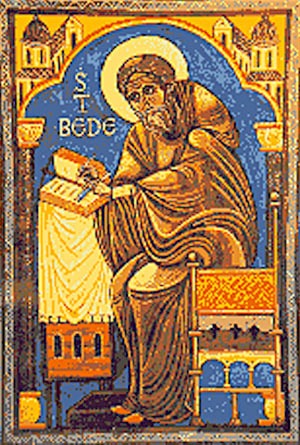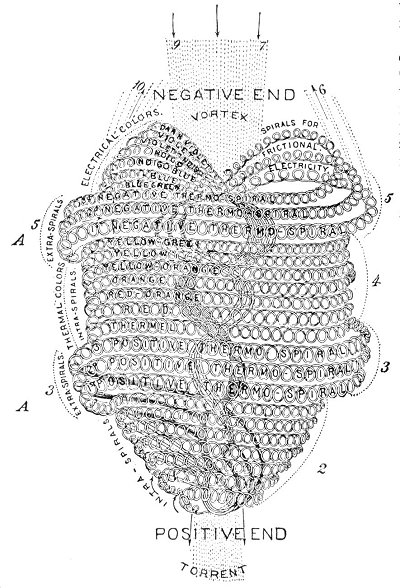There are, it has been estimated, in England and on the Continent, in all about 140 manuscripts of the “Ecclesiastical History.” Of these, four date from the eighth century: the Moore MS. (Cambridge), so called, because, after being sold by auction in the reign of William III, it came into the possession of Bishop Moore, who bequeathed it to the University of Cambridge; Cotton, Tiberius A, xiv; Cotton, Tiberius C, ii; and the Namur MS. A detailed account of these, as well as of a great number of other manuscripts, will be found in Mr. Plummer’s Introduction to his edition of Bede’s Historical Works. He has been the first to collate the four oldest MSS., besides examining numerous others and collating them in certain passages. He has pointed out that two of the MSS. dating from the eighth century (the century in which Bede died), the Moore MS. and Cotton, Tiberius A, xiv, point to a common original which cannot be far removed from Bede’s autograph. We are thus brought very near to our author, and may have more than in most cases the assurance that we have before us what he actually meant to say.
The earliest editions were printed on the Continent; the “editio princeps” is believed to date from 1475. A number of editions followed in the sixteenth and seventeenth centuries; the first in England was published by Abraham Whelock at Cambridge in 1643-4. Smith’s edition in 1722 marked a new era in the history of the book. It was the first critical edition, the text being based on the Moore MS. collated with three others, of which two were eighth century MSS.; and succeeding editors, Stevenson (1841), Giles (1842), Hussey (1846), the editor in the “Monumenta Historica Britannica” (1848), Moberly (1869), Holder (1882), base their work mainly on Smith’s. Mr. Mayor and Mr. Lumby together edited Books III and IV with excellent notes in 1878. Their text “reproduces exactly the Moore MS.” which they collated with some other Cambridge MSS. (cf. Mayor and Lumby, Excursus II). In 1896 the Rev. C. Plummer published his edition of Bede’s Historical Works, the first critical edition since Smith’s, and “the very first which exhibits in an apparatus criticus the various readings of the MSS. on which the text is based.” For the student of Bede this admirable book is of the highest value, and the labours of all succeeding editors are made comparatively light. Besides the most minute and accurate work on the text, it contains a copious and interesting commentary and the fullest references to the various sources upon which the editor has drawn.
The first translation of the “Ecclesiastical History” is the Anglo-Saxon version, executed either by Alfred himself or under his immediate supervision. Of this version Dr. Hodgkin says: “As this book had become a kind of classic among churchmen, Alfred allowed himself here less liberty than in some of his other translations. Some letters, epitaphs, and similar documents are omitted, and there is an almost complete erasure of the chapters relating to the wearisome Paschal controversy. In other respects the king’s translation seems to be a fairly accurate reproduction of the original work.” Mr. Plummer, however, finds it “very rarely available for the settlement of minute differences of reading.”
The first modern English translation is Thomas Stapleton’s (1565), published at Antwerp. It is a controversial work, intended to point out to Queen Elizabeth “in how many and weighty pointes the pretended refourmers of the Church . . . have departed from the patern of that sounde and Catholike faith planted first among Englishmen by holy S. Augustine, our Apostle, and his vertuous company, described truly and sincerely by Venerable Bede, so called in all Christendom for his passing vertues and rare lerning, the Author of this History.” To save Elizabeth’s time “in espying out the particulars,” the translator has “gathered out of the whole History a number of diversities between the pretended religion of Protestants and the primitive faith of the English Church.” If charm and appropriateness of style were the only qualities to be aimed at in a translation, we might well content ourselves with this rendering, which fills with despair the translator of to-day, debarred by his date from writing Elizabethan English.

Moe is the founder of GnosticWarrior.com. He is a father, husband, author, martial arts black belt, and an expert in Gnosticism, the occult, and esotericism.




